2015 Montana Alfalfa Variety Performance Summaries
2015 Alfalfa Varieties: Performance Summaries of the 2015 Montana Uniform Alfalfa Intrastate Forage Yield Trials
by Emily Meccage1 and Danielle Peterson2
Alfalfa is one of the most productive and widely-adapted forage species. In Montana,
average alfalfa acreage harvested from the years 2014-2016 totaled 1.8 million and
generated $466 million per year. In 2016 alone, Montana produced 3.6 million tons
of alfalfa hay, on 1.8 million acres. Alfalfa hay production equated to $479 million
in revenue for the state of Montana in 2016. (usda.mannlib.cornell.edu/usda/current/CropProdSu/CropProdSu-01-12-2017.pdf;
usda.mannlib.cornell.edu/usda/nass/CropValuSu//2010s/2017/CropValuSu-02-24-2017_revision.pdf;
https://www.nass.usda.gov/Quick_Stats/Ag_Overview/stateOverview.php?state=MONTANA)
Over 90% of all Montana hay is fed on-site. Since winter feed is the largest expense
for farm and ranch operations, efficient and optimum hay production is crucial to
ranch profitability. Hundreds of alfalfa varieties are available to US producers,
and performance trials are designed to assist Montana producers in choosing appropriate
adapted varieties. Performance of these varieties (yield and forage quality) varies
across the state of Montana due to differences in individual farm/ranch environments
and production methods.
Alfalfa variety performance trials were conducted at the National Resources Conservation
Service (NRCS), in Bridger, Montana and at the Western Agricultural Research Center
(WARC), in Corvallis, Montana. Alfalfa variety research at the NRCS was irrigated
using a flood irrigation system and research at the WARC utilized a sprinkler irrigation
system. New varieties were tested for forage yield for two production years after
establishment at both the NRCS and the WARC. All trials were planted in randomized
complete block experiments, with four replications. Trials received adequate fertilization
and weed control for optimum expression of genetic differences among varieties. This
publication summarizes yield performance at two locations for trials planted in 2015.
Table 1 and Figure 3 are summaries of data at both locations, Tables 2 and 3 and Figures
1 and 2 are individual location summaries.
Montana producers should select a variety based on its winterhardiness, yield potential,
pest resistance, and availability. It is recommended that producers use the performance
data in this publication to select varieties that are most likely to express optimum
performance based on individual farm/ranch geography. We are unable to maintain long-term
(10+ years) research plots to evaluate long-term survival and production. It is important
to evaluate performance in the 3rd and 4th years of production at individual locations,
as downward trends in yield may indicate winter injury or persistence problems. Additional
variety descriptions for species selection, seeding techniques, and management of
irrigated pastures specific to alfalfa production in Montana are available at:
http://animalrangeextension.montana.edu/forage/forage-management.html
1Animal & Range Science Dept., Assistant Professor and Forage Extension Specialist,
MSU, Bozeman, 406-994-5688, emily.glunk@montana.edu
2Animal and Range Sciences Dept., Forage Lab Manager, MSU, Bozeman
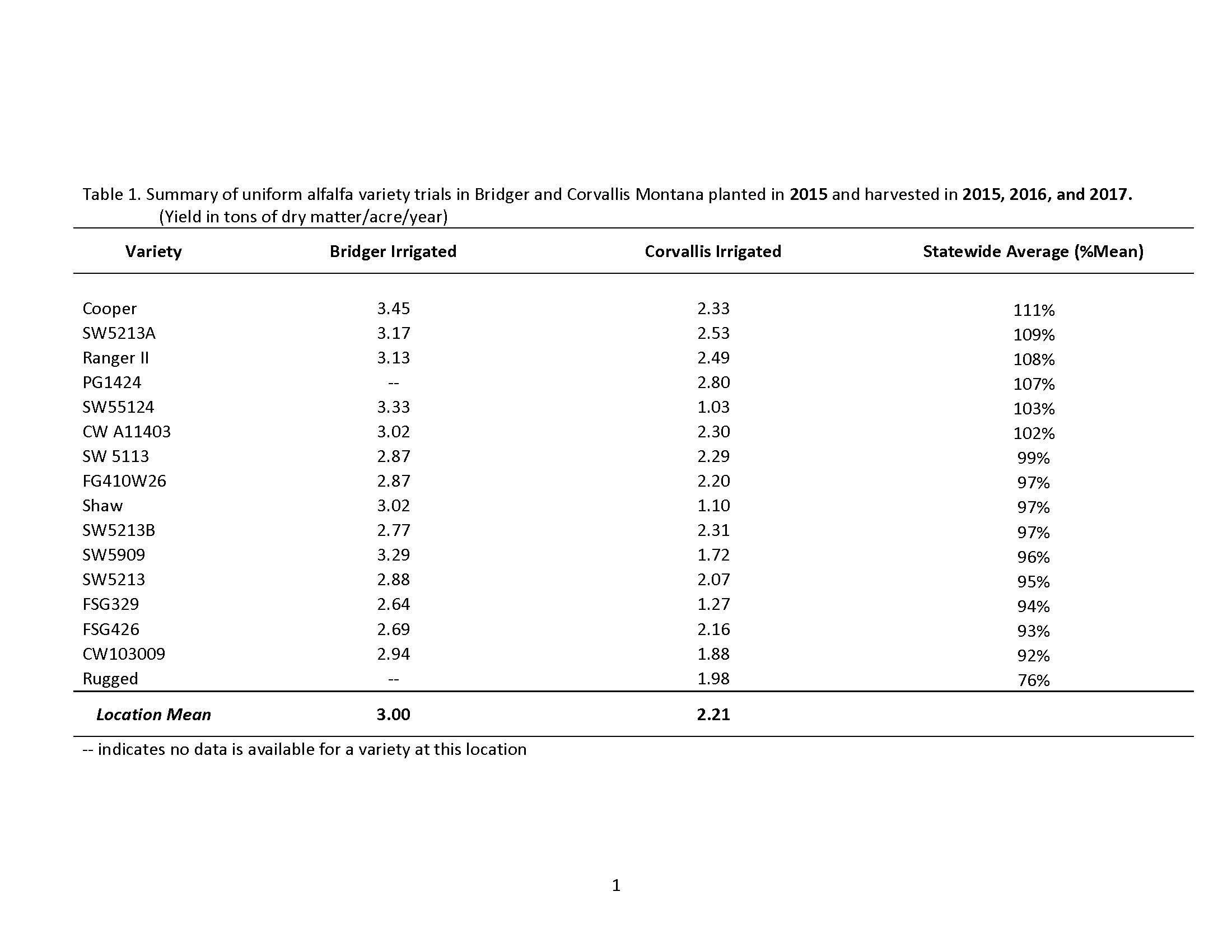
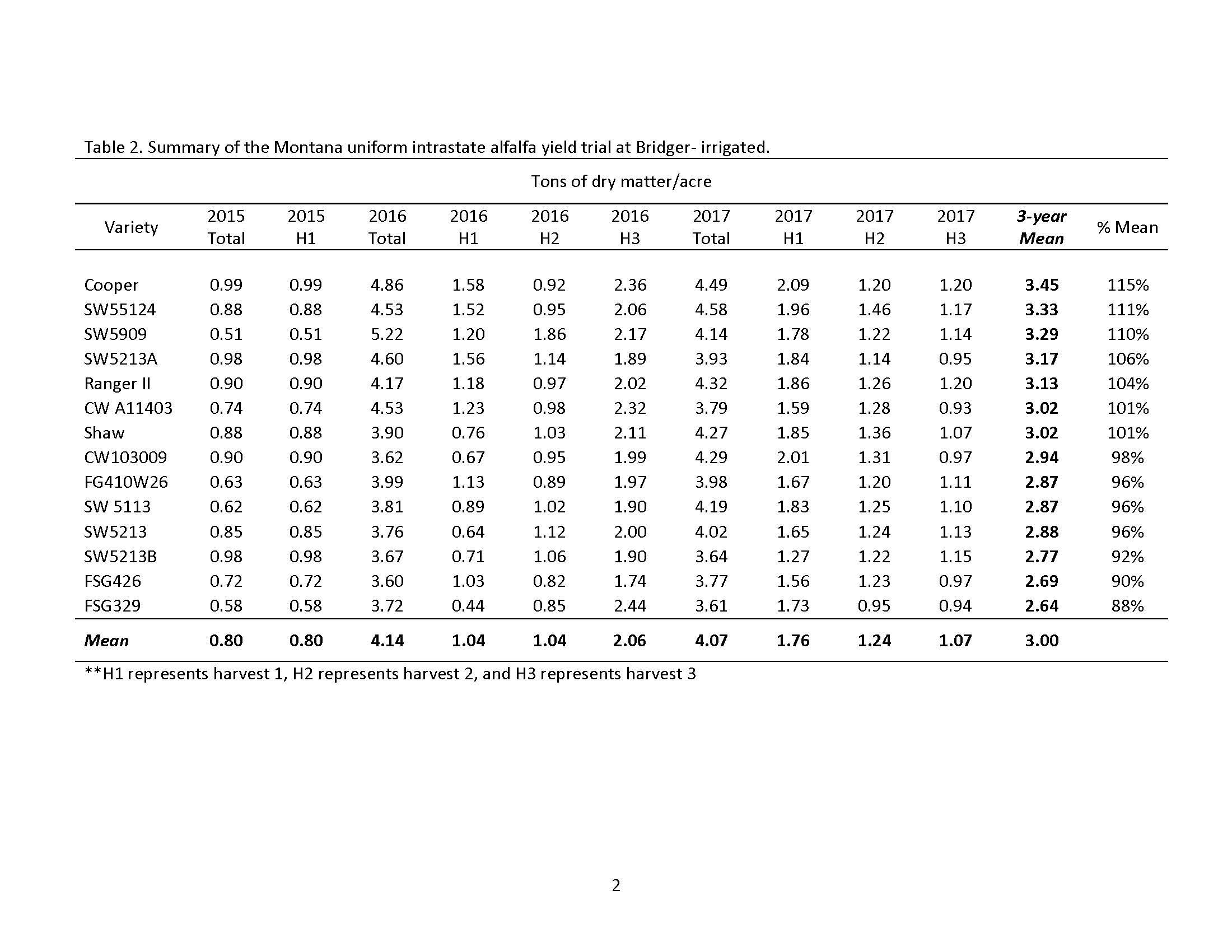
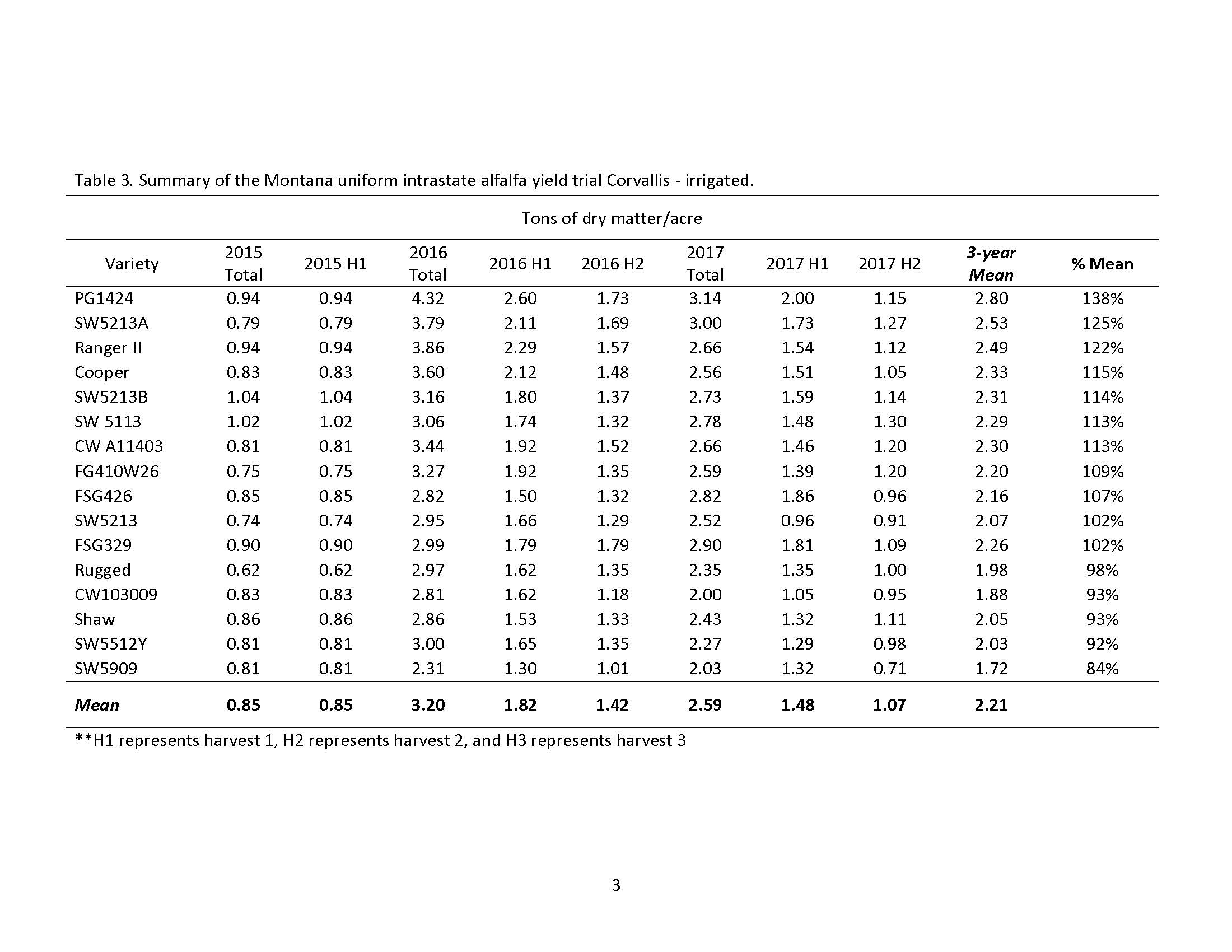
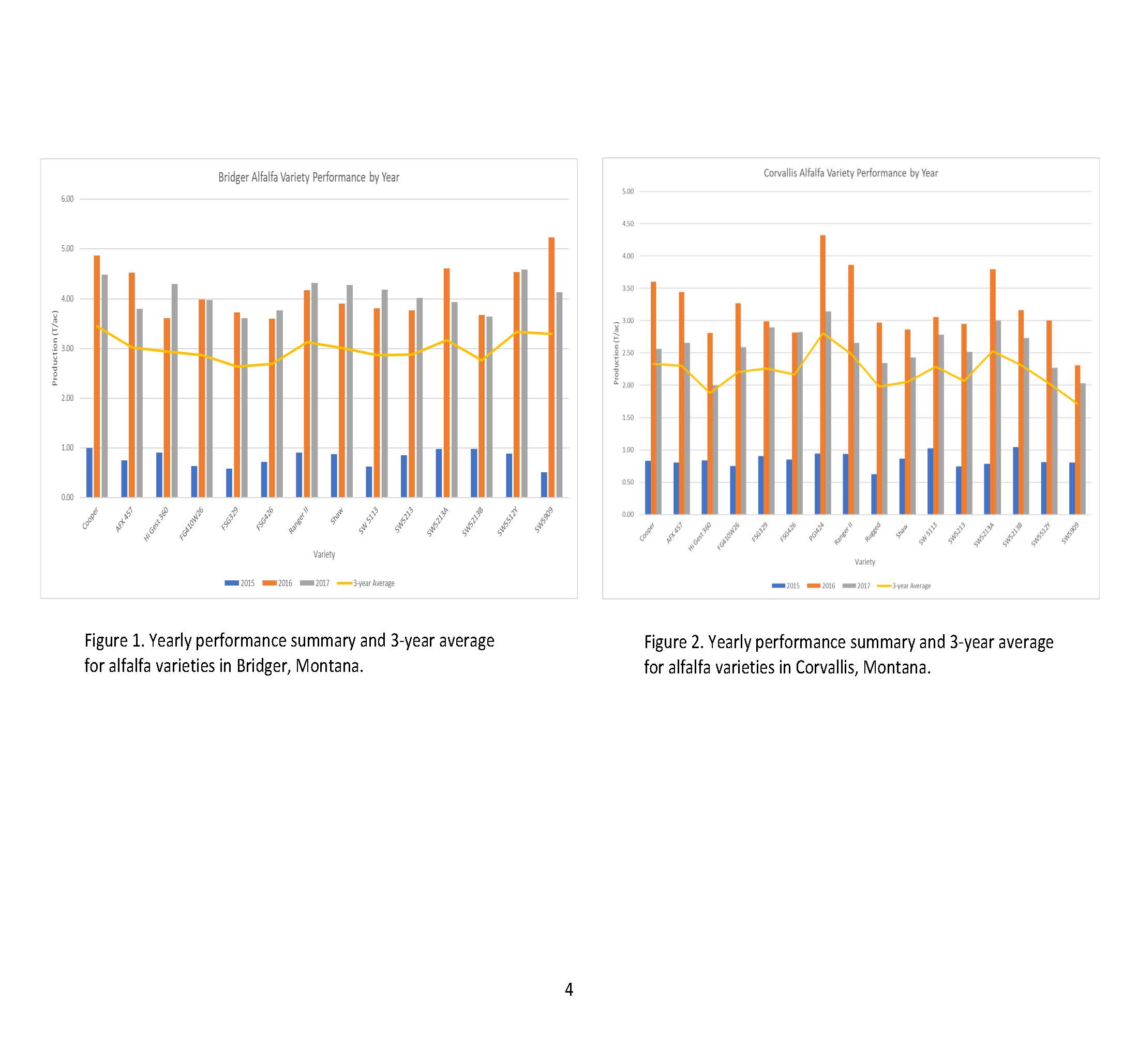
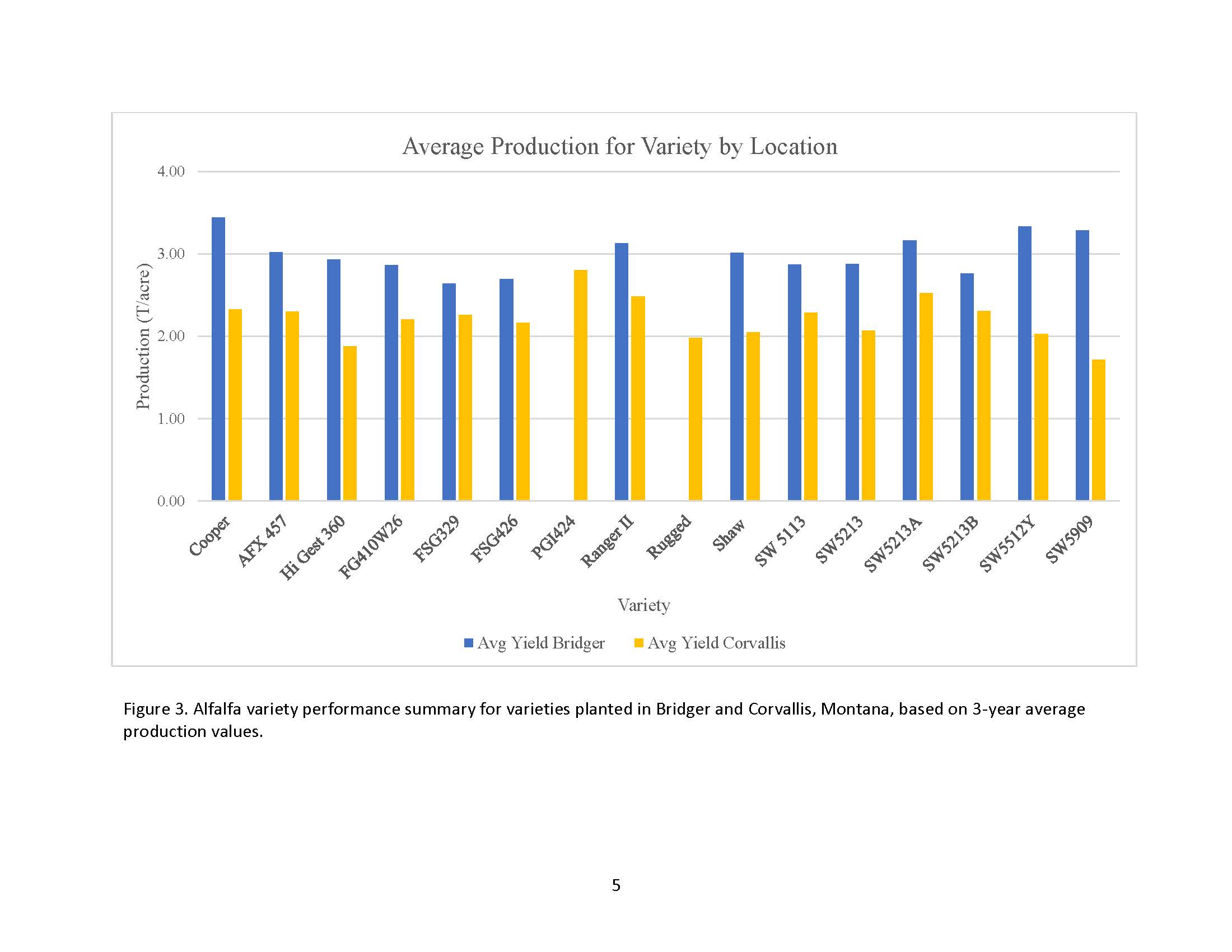
Reference Material
Winter Survival, Fall Dormancy, and Pest Resistance Ratings for Alfalfa Varieties,
2018 Edition
National Alfalfa Alliance Publication Available online at: http://www.alfalfa.org/varietyLeaflet.php
Historical Alfalfa Variety Performance Summaries (2011 and 2014)
Available online at: http://animalrangeextension.montana.edu/forage/alfalfa-varieties.html
Click here for a pdf version of the 2015 Montana Alfalfa Variety Performance Summaries.
